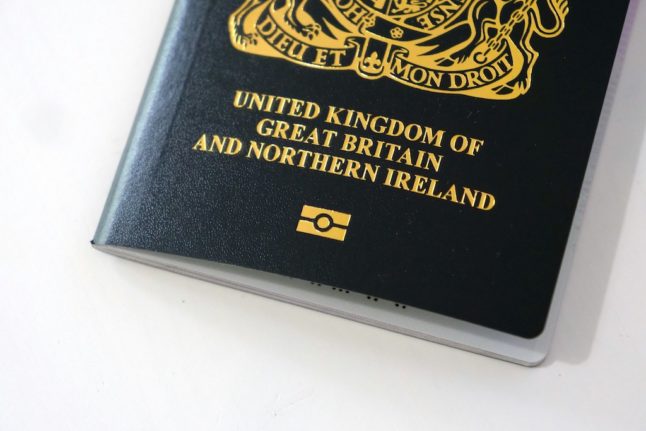Since 2013, British nationals living in Italy need to apply to renew their passports online at this link.
Bear in mind it takes an average of six to eight weeks to renew your British passport from abroad (last year wait times of up to ten weeks were reported), so make sure you leave plenty of time between starting your application and planning any trips abroad.
You’ll first be asked to upload a valid digital passport photo. The system will let you know whether the photo you upload meets the requirements for a UK passport photo, or whether you need to take it again.
The next step involves fill out an application form with, among other things, your full name and date of birth, your current residential address, and the details of your expiring passport.
You’ll then be asked to pay a fee of £94 for an adult or £61 for a child, plus a £19.86 courier fee to have your new passport sent out to you.
READ ALSO: How Britons living in Europe can register to vote for UK election
Finally, you’ll need to send your expired passport plus some supporting documents to HM Passport Office in the UK; these will be returned to you along with your new passport.
Once you’ve put in your application, you may be asked to provide additional supporting documents.
You’ll usually have six weeks to do so; if you don’t provide the required information in this timeframe, your application will be cancelled and you won’t receive a refund.
Once your application has been accepted, you’ll be able to track its progress on the site.
A detailed guide to the renewal process can be found here.
Postal problems
Some of The Local’s readers have been in touch to say they were prevented from sending their expired passports to the UK by workers at Poste Italiane, Italy’s state-owned postal service (one was told that doing so would be in breach of both Italian and international law).
Poste Italiane does list passports and other ID documents as prohibited items for sending by international post on its website.
However, it’s fair to say that most people are ignorant of this not-very-well-advertised ban.
In reality, many applicants report having successfully used Poste Italiane’s services to send their passports from Italy to the UK, despite it technically breaking the company’s rules.
READ ALSO: What Brits in Italy need to know if they move back to the UK post-Brexit
Since Italian residents applying for the renewal of their UK passports are actively instructed to send in their old passports from Italy, it seems unlikely that mailing your passport could be considered illegal. The Local has contacted Poste Italiane for clarification.
Generally, postal or courier services refuse to accept passports because they don’t want to accept liability if the document is lost and used to commit identity fraud.
However, DHL and some other couriers advertise that they will provide a tracked service for passport delivery – for a fairly hefty fee.
If you want to be sure your passport arrives in good time and isn’t lost in the post, it’s probably worth paying the extra money for the peace of mind that comes with step by step tracking and knowing you’re doing things by the book.



 Please whitelist us to continue reading.
Please whitelist us to continue reading.
Member comments